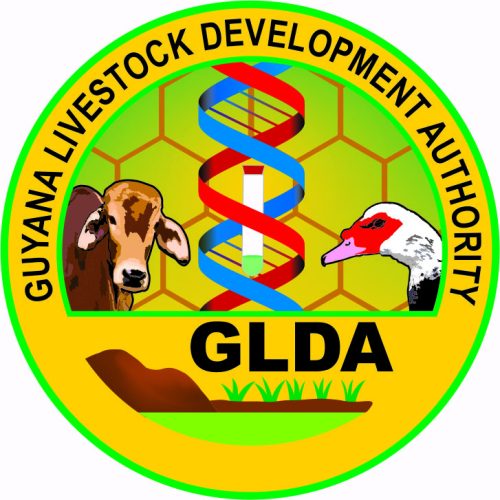-in wake of criticisms by Campbell
By Khadidja Ba
In the wake of criticisms from businessman Terrence Campbell, the Ministry of Agriculture yesterday defended its management of the poultry industry and says it working towards the use of a locally developed vaccine for the industry.
It said that once the vaccine completes its line of trials it is expected to add to the government’s efforts to stimulate immunity in the poultry sector.
Campbell on January 6th criticized the government by way of a letter in Stabroek News for seemingly “foot-dragging on poultry vaccination” which “has left the sector struggling to satisfy local demand”. In his letter he stated that “Farmers have also been experiencing high rates of mortality as a result of inclusion body hepatitis (IBH). The government has demonstrated ineptitude in its response to the disease.” He also stated that “The question that naturally arises, is why isn’t the government moving quickly to try other vaccines?…One initial policy response was to import chicken and distribute through the farmers to mitigate their losses. However, greed stepped in and now many, without any historical connection to the sector, are recipients of these imports. Anecdotal evidence suggest that many containers are steered towards a politically favoured business octopus.”

In its statement on behalf of the ministry, the Guyana Livestock Development Authority (GLDA) highlighted the actions taken by the Ministry of Agriculture under the current administration to address IBH. In 2023, President Irfaan Ali approved a $29 million allocation to purchase vaccines to combat IBH. The government also enlisted a team of expert pathologists, virologists, and nutritionists to assess potential vaccines. Following comprehensive evaluations, they selected the most effective vaccine to combat the virus. The GLDA’s veterinarians continue to research global advancements in IBH management to ensure Guyana’s efforts remain aligned with international best practices. Additionally, a comprehensive monitoring programme was put in place to ensure hatcheries adhered

to vaccination guidelines at the appropriate time.
Recognizing the effects of IBH on local production, the GLDA stated that the Government has implemented a programme to support small-scale poultry farmers who suffered production shortfalls. In collaboration with the New Guyana Marketing Corporation (New GMC), the GLDA distributed chicken to over 1,500 farmers to help maintain market supply. The chicken was sold at cost price, allowing retailers to profit and keeping consumer prices stable.
Additionally, President Ali announced in 2023 that small, medium, and large-scale poultry farmers would benefit from reduced financing costs, a move aimed at fostering sector growth. The government also introduced legislative measures to support hatchery compliance and enhance the overall industry framework.
According to the statement, during the National Poultry Symposium in July 2023, Ali outlined further initiatives to strengthen the sector, including the establishment of the National Poultry Association and a $11 million investment in quarantine and surveillance equipment. The GLDA’s Nutrition Laboratory was also upgraded with an additional $3 million investment.
The government has also focused on sourcing hatching eggs from vaccinated flocks to improve chick immunity and reduce disease transmission. Furthermore, approximately $20 million was invested in a broiler breeder programme, which aims to enhance national self-sufficiency and improve poultry immunity.
While diseases such as Newcastle and Bird Flu continue to affect other countries, GLDA noted that Guyana has successfully kept these threats under control thanks to the Ministry of Agriculture’s strategic interventions.
Smuggling
Meanwhile, David Fernandes, Managing Director of Bounty Farms Limited, yesterday provided insights into IBH’s evolving nature, upon the request of SN, noting that it had previously been an opportunistic disease. However, in 2021, it began causing significant liver damage, transforming it from a mild viral illness into a more severe and recognized problem for poultry, not only in Guyana but across the Caribbean and Latin America. He emphasized the need for resilience in the industry, noting that changes in practices would help mitigate future threats. “The disease has given us challenges, but it is our job as an industry to be resilient and change the way we do things to mitigate how we handle these threats…This disease will never go, we have to make adjustments to conquer it,” Fernandes said.
The impact of IBH was felt in production setbacks, with Fernandes suggesting that had the disease not emerged, Guyana would have likely seen a surplus of chicken by 2022-2023, meeting increasing demand “I could say this categorically, had we not had the disease we would have been more than adequately supplying on a national level. We would have had a surplus already, even by 2022-2023 so we would not have been in this…with increasing demand and we would have been keeping up,” he said. He also highlighted those environmental factors, such as Guyana’s high humidity and temperature, further exacerbate the disease’s impact “Right now, the birds have on their ‘winter coat,’ and they’re feeling just as hot as we are, probably even more hot,” he observed. “The birds can’t even sweat, so we’re trying to rear them in a naturally ventilated housing, but they are designed to survive in a tunnel house in the first world.” He noted that the birds, unable to sweat, struggle in the hot conditions, especially with the inadequate ventilation in current housing. “The whole Caribbean has gone to tunnel ventilation, and Guyana is moving in this direction. We have to speed it up”, he stated.
Fernandes also acknowledged the positive role of the Gas-to-Shore project, which is expected to reduce electricity costs, assisting poultry farming.
“The gas to shore project should reduce electricity cost and will help, so those things will help”. He praised the GLDA and Ministry of Agriculture for their support in addressing IBH, particularly in facilitating vaccine imports. When a new strain of IBH was discovered in 2021, Fernandes recounted how the government assisted in bringing in vaccines from Egypt. “We shared this information with the government, and they were willing to help pay for the vaccines,” he said, clarifying that the industry was prepared to cover the costs but appreciated the government’s assistance.
International collaboration has been crucial in tackling IBH. Experts from the USA, Brazil, Mexico, and Egypt have contributed to the search for solutions, with GLDA facilitating necessary permits for vaccine imports. Fernandes also highlighted the use of an autogenous vaccine developed in Mexico. This involved macerating diseased organs and injecting them into chicks, a process carried out in collaboration with GLDA’s veterinary laboratory. Though initially promising, the results were not as expected, and Fernandes stressed that vaccines are not a cure-all but can help fortify the immune system. “Even though we vaccinated again with Avimex 4 and 8, if your birds are not in an environment that is absolutely perfect for them, once they get stressed, they come down with the disease,” he explained.
He also noted the IBH challenges specific to the broiler industry, where baby chicks live only 6-8 weeks and do not have the opportunity to develop immunity against recurring diseases. Furthermore, efforts to source poultry have faced difficulties, with no imported or locally produced chicks proving immune to IBH. Fernandes shared, “We brought eggs from the USA, Brazil, and Holland, but none of those chicks have proven to be immune.”
In response to Campbell’s allegations of corruption in the poultry industry, Fernandes addressed the ongoing issue of smuggling, particularly the illegal importation of chicken from Suriname.
“Smuggling has always been a challenge,” Fernandes acknowledged. He emphasized that the Guyana Revenue Authority (GRA) and other relevant government bodies are actively working to combat the issue. “Whenever such activities are discovered, they are thoroughly investigated,” he added, referencing instances where smuggled alcohol and chicken products have been seized and reported in the media. The GLDA also reaffirmed in its statement that “the government has been transparent in addressing all challenges and in implementing programmes and strategies to further advance the industry.”








